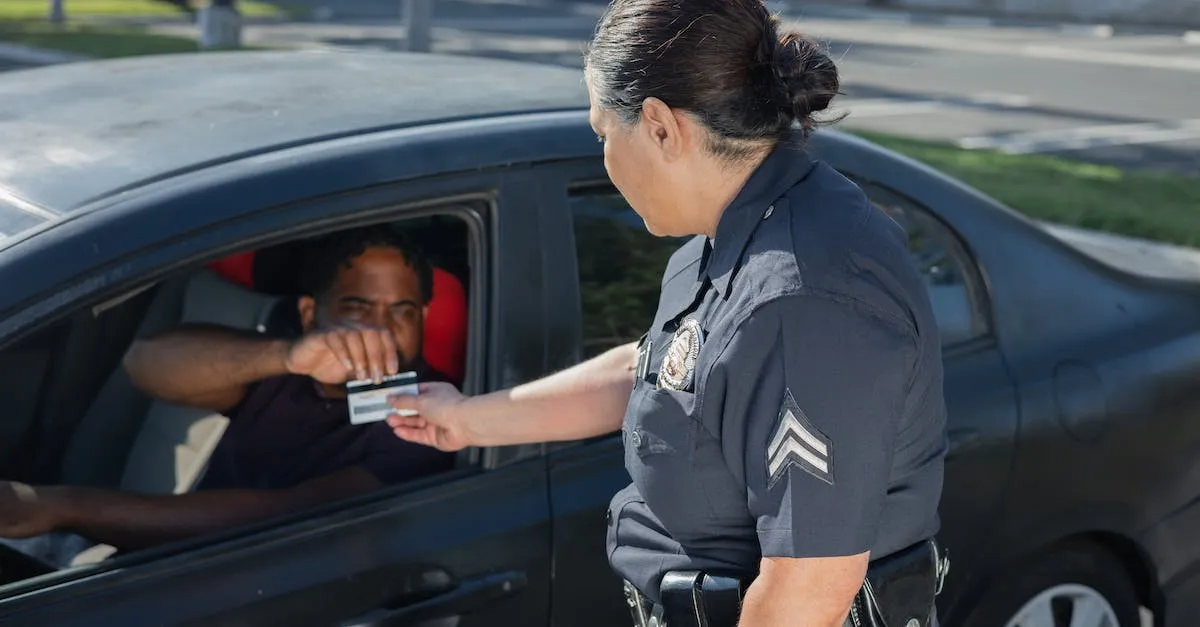Do Passengers Have To Show Id In Florida? What To Know
Getting pulled over as a passenger in a car can be an uneasy experience, especially if you’re unsure of your rights. You may wonder if you’re required to show ID in Florida or if you can refuse.
If you’re short on time, here’s a quick answer: In Florida, passengers are generally not required to show ID during a traffic stop unless the officer has reasonable suspicion of a crime. But it’s best to cooperate.
In this comprehensive guide, we’ll cover when passengers are legally required to show ID in Florida, what rights you have during a traffic stop, and expert tips for safely navigating these situations.
Florida Law on Passenger ID
When it comes to showing identification while traveling in Florida, there are some important points to keep in mind. Under Florida law, there is no requirement for passengers to show ID unless there is a reasonable suspicion of criminal activity.
This means that in most cases, passengers can travel within the state without having to present any form of identification.
No Requirement Without Suspicion
Florida law is clear that law enforcement officers cannot demand passengers to show ID without reasonable suspicion of criminal activity. This is in line with the Fourth Amendment of the United States Constitution, which protects against unreasonable searches and seizures.
Therefore, if you are simply a passenger in a vehicle or using public transportation, you generally do not have to show ID to law enforcement.
It is important to note that reasonable suspicion is based on specific facts and circumstances that would lead a reasonable person to believe that a crime has been, is being, or is about to be committed. It cannot be based on a hunch or general suspicion.
If an officer does not have reasonable suspicion, they cannot require you to show ID.
Comply and Fight Later
While passengers are not required to show ID without reasonable suspicion, it is important to remember that it is generally in your best interest to comply with a law enforcement officer’s requests. Refusing to cooperate could escalate the situation and potentially lead to unnecessary complications.
If you believe that your rights have been violated and you were asked to show ID without reasonable suspicion, it is recommended to comply with the officer’s request and then seek legal assistance to address the issue.
Documenting the incident, including the time, date, location, officer’s name and badge number, can also be helpful in making a complaint or building a case.
It is worth noting that these laws and guidelines may vary from state to state. If you are outside of Florida, it is always a good idea to familiarize yourself with the specific laws regarding passenger ID in that particular jurisdiction.
For more information on your rights as a passenger in Florida, you can visit the official website of the American Civil Liberties Union (ACLU) at www.aclu.org. The ACLU is known for their advocacy work in protecting individual rights and liberties.
Scenarios Where You May Need to Show ID
While traveling in Florida, there are certain scenarios where you may be required to show identification. It’s important to be aware of these situations to ensure a smooth and hassle-free experience. Here are two common scenarios where you may need to show your ID:
Pulled Over in a Rental Car
If you find yourself being pulled over by law enforcement while driving a rental car in Florida, you may be asked to show your ID. This is because the police officer needs to verify your identity and ensure that you are the authorized driver of the rental vehicle.
It’s always a good idea to have your driver’s license readily accessible when driving a rental car, as it can help expedite the process and prevent any unnecessary delays.
Underage Passengers and Alcohol
In Florida, it is illegal for individuals under the age of 21 to consume alcoholic beverages. If you are traveling with underage passengers and alcohol is present in the vehicle, you may be required to show your ID to law enforcement.
This is to verify that you are of legal drinking age and not providing alcohol to minors. It’s important to remember that as the driver, you are responsible for ensuring the safety and compliance of all passengers in your vehicle.
It’s worth noting that these scenarios are not limited to Florida and may be applicable in other states as well. It’s always a good idea to familiarize yourself with the specific laws and regulations of the state you are traveling in to avoid any potential issues.
Your Rights as a Passenger During a Traffic Stop
Being a passenger in a vehicle during a traffic stop can be a stressful experience. It is important to understand your rights and how to protect them. In Florida, passengers have certain rights that they can exercise during a traffic stop.
Familiarizing yourself with these rights can help ensure that you are treated fairly and that your constitutional rights are respected.
Right to Remain Silent
One of the most important rights that passengers have during a traffic stop is the right to remain silent. This means that you do not have to answer any questions asked by law enforcement officers, except for providing your identification if requested.
You can politely exercise this right by saying, “I am exercising my right to remain silent.”
Remaining silent can be a smart move, as anything you say can be used against you or the driver in a court of law. It is essential to remember that while you have the right to remain silent, you should still be respectful and cooperative with the officer.
Right to Record the Stop
Another important right that passengers have during a traffic stop is the right to record the stop. In Florida, it is legal to record police officers in public places as long as you do not interfere with their duties. This includes recording a traffic stop from inside the vehicle as a passenger.
Recording the stop can serve as evidence in case of any misconduct or violations of your rights during the traffic stop. It is important to ensure that you do not obstruct the officer or interfere with their actions while recording.
Additionally, it is always a good idea to inform the officer that you are recording, as this can help prevent any misunderstandings or conflicts.
It is worth noting that laws regarding recording police officers can vary from state to state. Therefore, it is important to familiarize yourself with the specific laws in your state to ensure that you are not inadvertently breaking any rules.
For more information on your rights as a passenger during a traffic stop in Florida, you can visit the American Civil Liberties Union (ACLU) website. They provide detailed information and resources to help you understand and protect your rights.
Tips for Passengers Dealing With Requests for ID
Stay Calm and Polite
It can be unsettling when a transportation authority or security personnel request to see your identification as a passenger. However, it is important to remain calm and polite in such situations. Losing your temper or becoming confrontational may only escalate the situation and cause unnecessary delays.
Remember, these authorities are simply doing their job to ensure the safety and security of all passengers.
Clarify Why ID is Needed
If you are unsure why your ID is being requested, politely ask for clarification. Understanding the reason behind the request can help alleviate any concerns or confusion you may have. It is possible that the transportation authority or security personnel are conducting routine checks or verifying passenger information.
By asking for an explanation, you can gain a better understanding of the situation and put your mind at ease.
Additionally, if you have any concerns about the legitimacy of the request, you can ask to speak with a supervisor or request to see the official policy regarding ID checks. This can help ensure that the request is valid and not a case of mistaken identity or unauthorized action.
Remember, while it may seem intrusive, the requirement to show ID is often put in place to maintain the safety and security of all passengers. It is a measure designed to prevent potential threats and ensure a smooth and secure travel experience.
For more information on passenger rights and regulations, you can visit the official website of the Transportation Security Administration at www.tsa.gov.
Conclusion
While passengers in Florida are not automatically required to show ID during traffic stops, there are some exceptions where officers can legally request your identification. Knowing your rights can help guide interactions.
By staying calm, not arguing with demands to show ID, and clarifying the law, you can advocate for yourself while avoiding escalation. With sound advice, passengers can respectfully navigate traffic stop encounters in Florida.








